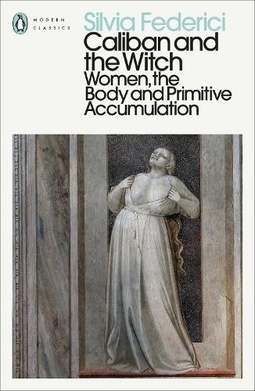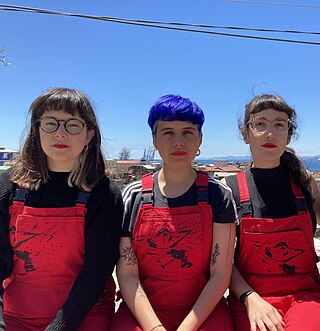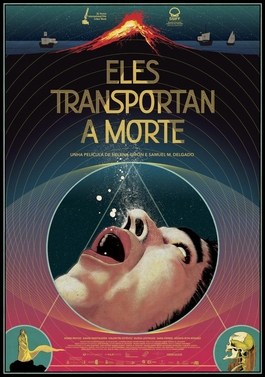Marxist feminism is a philosophical variant of feminism that incorporates and extends Marxist theory. Marxist feminism analyzes the ways in which women are exploited through capitalism and the individual ownership of private property. According to Marxist feminists, women's liberation can only be achieved by dismantling the capitalist systems in which they contend much of women's labor is uncompensated. Marxist feminists extend traditional Marxist analysis by applying it to unpaid domestic labor and sex relations.
Socialist feminism rose in the 1960s and 1970s as an offshoot of the feminist movement and New Left that focuses upon the interconnectivity of the patriarchy and capitalism. However, the ways in which women's private, domestic, and public roles in society has been conceptualized, or thought about, can be traced back to Mary Wollstonecraft's A Vindication of the Rights of Woman (1792) and William Thompson's utopian socialist work in the 1800s. Ideas about overcoming the patriarchy by coming together in female groups to talk about personal problems stem from Carol Hanisch. This was done in an essay in 1969 which later coined the term 'the personal is political.' This was also the time that second wave feminism started to surface which is really when socialist feminism kicked off. Socialist feminists argue that liberation can only be achieved by working to end both the economic and cultural sources of women's oppression.
In Marxian economics and preceding theories, the problem of primitive accumulation of capital concerns the origin of capital and therefore how class distinctions between possessors and non-possessors came to be.

The commons is the cultural and natural resources accessible to all members of a society, including natural materials such as air, water, and a habitable Earth. These resources are held in common even when owned privately or publicly. Commons can also be understood as natural resources that groups of people manage for individual and collective benefit. Characteristically, this involves a variety of informal norms and values employed for a governance mechanism. Commons can also be defined as a social practice of governing a resource not by state or market but by a community of users that self-governs the resource through institutions that it creates.

Nancy Fraser is an American philosopher, critical theorist, feminist, and the Henry A. and Louise Loeb Professor of Political and Social Science and professor of philosophy at The New School in New York City. Widely known for her critique of identity politics and her philosophical work on the concept of justice, Fraser is also a staunch critic of contemporary liberal feminism and its abandonment of social justice issues. Fraser holds honorary doctoral degrees from four universities in three countries, and won the 2010 Alfred Schutz Prize in Social Philosophy from the American Philosophical Association. She was President of the American Philosophical Association Eastern Division for the 2017–2018 term.
Autonomism or autonomismo, also known as autonomist Marxism, is an anti-capitalist social movement and Marxist-based theoretical current that first emerged in Italy in the 1960s from workerism. Later, post-Marxist and anarchist tendencies became significant, after influence from the Situationists, the failure of Italian far-left movements in the 1970s, and the emergence of a number of important theorists including Antonio Negri, who had contributed to the 1969 founding of Potere Operaio, as well as Mario Tronti, Paolo Virno, and Franco Berardi.
Affective labor is work carried out that is intended to produce or modify emotional experiences in people. This is in contrast to emotional labor, which is intended to produce or modify one's own emotional experiences. Coming out of Autonomist feminist critiques of marginalized and so-called "invisible" labor, it has been the focus of critical discussions by, e.g., Antonio Negri, Michael Hardt, Juan Martin Prada, and Michael Betancourt.

Selma James is an American writer, and feminist and social activist who is co-author of the women's movement book The Power of Women and the Subversion of the Community, co-founder of the International Wages for Housework Campaign, and coordinator of the Global Women's Strike.
George Caffentzis is an American political philosopher and an autonomist Marxist. He founded the Midnight Notes Collective, is a founder member of the co-ordinator of the Committee for Academic Freedom in Africa and a professor of philosophy at the University of Southern Maine. His partner is Silvia Federici.

The International Wages for Housework Campaign (IWFHC) is a grassroots women's network campaigning for recognition and payment for all caring work, in the home and outside. It was started in 1972 by Mariarosa Dalla Costa, Silvia Federici, Brigitte Galtier, and Selma James who first put forward the demand for wages for housework. At the third National Women's Liberation Conference in Manchester, England, the IWFHC states that they begin with those with least power internationally – unwaged workers in the home (mothers, housewives, domestic workers denied pay), and unwaged subsistence farmers and workers on the land and in the community. They consider the demand for wages for unwaged caring work to be also a perspective and a way of organizing from the bottom up, of autonomous sectors working together to end the power relations among them.
Feminism in Italy originated during the Italian Renaissance period, beginning in the late 13th century. Italian writers such as Moderata Fonte, Lucrezia Marinella, and others developed the theoretical ideas behind gender equality. In contrast to feminist movements in France and United Kingdom, early women's rights advocates in Italy emphasized women's education and improvement in social conditions.
Various feminist interpretations of witch trials in the early modern period have been made and published throughout the nineteenth and twentieth centuries. These interpretations have evolved with popular feminist ideologies, including those of the first-wave, second-wave feminism, and socialist feminist movements.
Mariarosa Dalla Costa is an Italian autonomist feminist and co-author of the classic The Power of Women and the Subversion of the Community, with Selma James. This text launched the "domestic labour debate" by re-defining housework as reproductive labor necessary to the functioning of capital, rendered invisible by its removal from the wage-relation.
Economic Violence is a form of structural violence in which specific groups of people are deprived of critical economic resources. Bandy X. Lee, a psychiatrist and scholar on the subject of violence, asserts that such economic impediments are among the "avoidable limitations that society places on groups of people [which] constrain them from meeting their basic needs and achieving the quality of life that would otherwise be possible." As with other forms of Structural Violence, Lee notes that it is typically inflicted by institutions to the effect of exercising power over vulnerable groups.

Reproductive labor or work is often associated with care giving and domestic housework roles including cleaning, cooking, child care, and the unpaid domestic labor force. The term has taken on a role in feminist philosophy and discourse as a way of calling attention to how women in particular are assigned to the domestic sphere, where the labor is reproductive and thus uncompensated and unrecognized in a capitalist system. These theories have evolved as a parallel of histories focusing on the entrance of women into the labor force in the 1970s, providing an intersectionalist approach that recognizes that women have been a part of the labor force since before their incorporation into mainstream industry if reproductive labor is considered.
Feminist urbanism is a theory and social movement concerning the impact of the built environment on women. The theory aims to understand what it means to be a woman in an urban space and what struggles and opportunities women encounter in these environments.

Louise Toupin is a Canadian political scientist and specialist in feminist studies. She was a founding member of the Women's Liberation Front of Quebec and Éditions du remue-ménage, which were important sites of feminist activism in the late 1960s and early 1970s in Montreal. She then earned a PhD from the Université du Québec à Montréal, later becoming a lecturer at that same institution. Her research focused on collections and analyses of feminist theory from the recent history of Québec.

Caliban and the Witch: Women, the Body and Primitive Accumulation is a 2004 book by Italian-American intellectual Silvia Federici. Responding to both feminist and Marxist traditions, the book offers a critical alternative to Karl Marx's theory of primitive accumulation.

LASTESIS are a Chilean interdisciplinary, intersectional and trans-inclusive feminist collective, whose members are Sibila Sotomayor Van Rysseghem, Daffne Valdés Vargas and Paula Cometa Stange. Sotomayor and Valdés are from a theater background, while Cometa from a background in design and history. The collective’s name embodies the group's interest in promoting the tesis (theses) of important feminist thinkers, such as Silvia Federici and Rita Segato, in their performances. LASTESIS direct their performances toward institutionalized sexual violence against women committed by police, government officials, and other systems of power. An important component of LASTESIS’ anti-patriarchal art is their choreography: distinct movements that transition as each song unfolds in front of the audience and which engage the audience.

They Carry Death is a 2021 Spanish-Colombian drama film written and directed by Helena Girón and Samuel M. Delgado, at their feature film debut. It is inspired by Silvia Federici's essay Caliban and the Witch: Women, Body and Primitive Accumulation.









